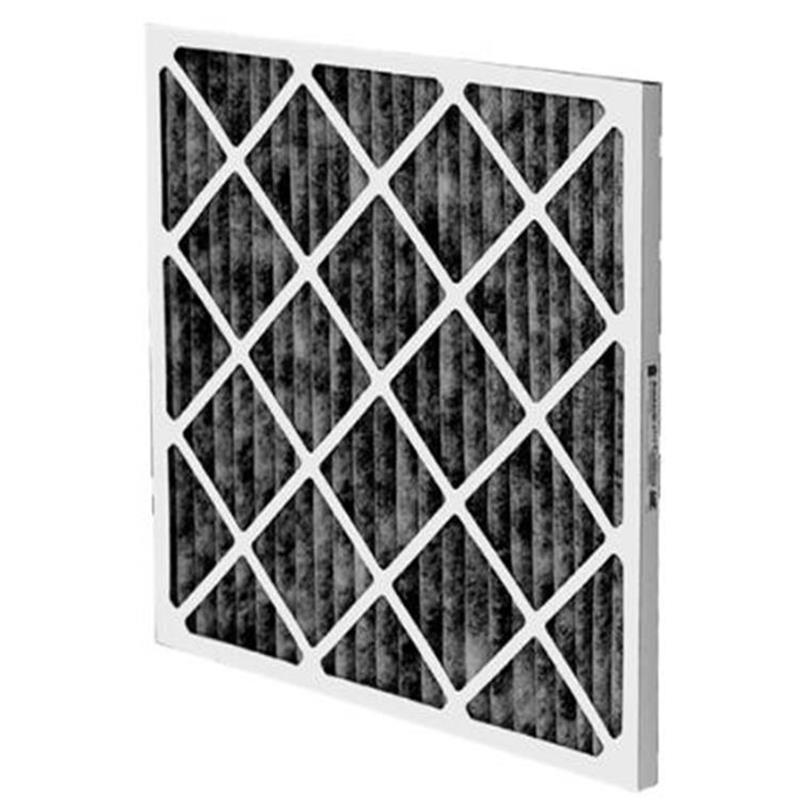Many users often wonder whether an AMC Filter can be reused after cleaning or regeneration.In industries such as semiconductors,optics,and pharmaceuticals,where air purity is critical,the performance of an AMC filter directly affects product quality and equipment lifespan.However,because of how these Filters work,reusing them after cleaning is rarely practical or effective.
An AMC filter,short for Airborne Molecular Contamination filter,is designed to capture gaseous pollutants and molecular contaminants that are too small for standard particulate Filters to remove.These pollutants include acidic gases,bases,and organic compounds that can corrode delicate surfaces or interfere with chemical processes.The AMC filter uses materials such as activated carbon,impregnated alumina,or zeolite to adsorb and chemically neutralize harmful gases in the air.Over time,these materials become saturated,and the filter’s efficiency gradually decreases.
When an AMC filter reaches the end of its service life,some operators consider cleaning or regenerating it to save costs.However,the effectiveness of such methods is very limited.The primary reason is that most adsorption reactions within the AMC filter are chemical,not physical.Once a molecule reacts with the filter media,the bond cannot be reversed simply by washing or heating.Attempts to clean the filter with solvents or heat treatment often damage the internal structure of the media,reducing airflow and filtration capacity.In addition,improper cleaning can cause cross-contamination,introducing new impurities into the clean environment instead of removing them.

While there are some experimental or controlled regeneration techniques,such as thermal desorption or inert gas purging,they can only remove a portion of the weakly adsorbed contaminants.These methods cannot fully restore the original adsorption capacity or ensure consistent performance.As a result,regenerated AMC Filters are not recommended for use in critical environments such as semiconductor cleanrooms,pharmaceutical labs,or precision optical production areas.Even a small amount of residual contamination can lead to costly defects or equipment damage in these applications.
For industries that require stable and predictable air quality,replacing the AMC filter with a new one is the best practice.The cost of a new filter is minimal compared to the potential losses caused by contaminated air.Regular replacement ensures that the cleanroom maintains optimal chemical purity and complies with international standards such as ISO 14644.Facilities that follow scheduled maintenance plans often experience fewer production interruptions and longer equipment life.
In non-critical environments,such as general HVAC systems or storage cabinets,some organizations experiment with partial regeneration or extended use.While this might reduce immediate costs,it usually comes at the expense of lower efficiency and less predictable air quality.For long-term reliability and safety,complete replacement remains the preferred solution.
Proper maintenance also plays an important role in extending the effective life of AMC filters.Monitoring air quality regularly,maintaining stable humidity and temperature,and storing spare filters in sealed,dry conditions can all help prevent premature saturation.Following the manufacturer’s recommended replacement cycle ensures consistent performance and reduces the risk of contamination.
In conclusion,AMC filters are not designed for reuse after cleaning or regeneration.The chemical adsorption process that makes them effective also makes it nearly impossible to restore them once they are saturated.For any cleanroom or sensitive manufacturing environment,replacing AMC filters on schedule is the only reliable way to maintain air purity,protect equipment,and ensure product quality.While regeneration may seem appealing from a cost-saving perspective,the long-term risks far outweigh the short-term benefits.Choosing new,high-quality AMC filters is always the smarter and safer investment.